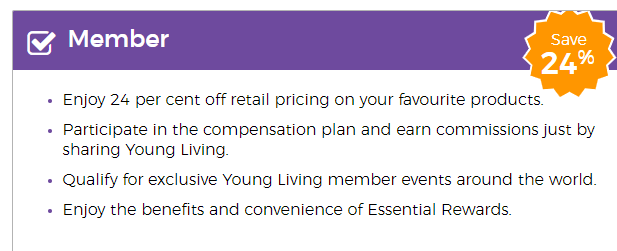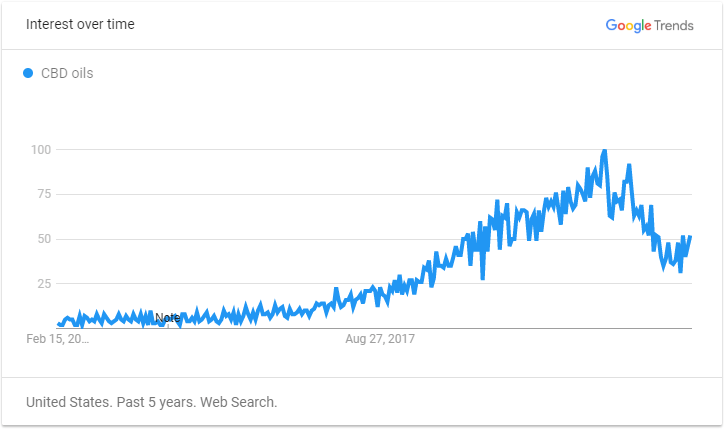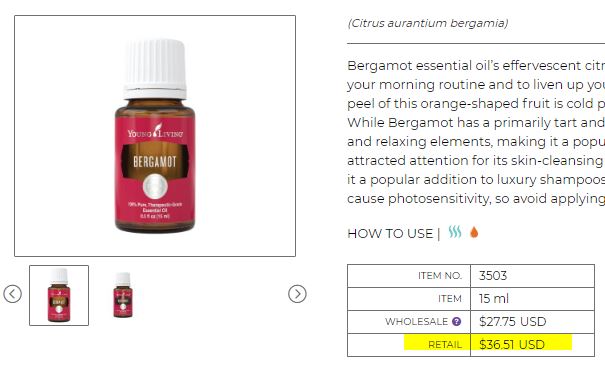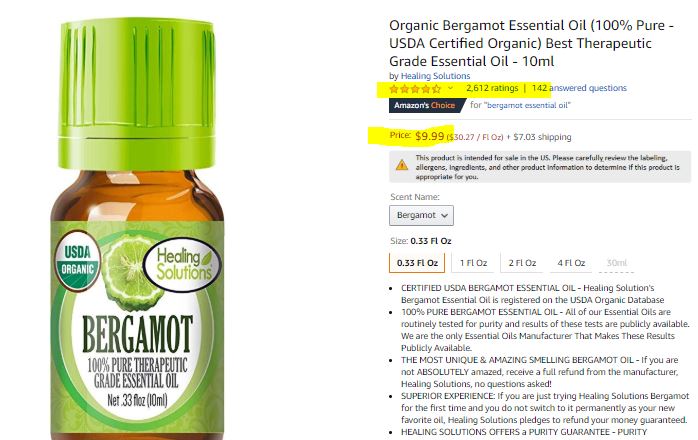
What comes to your mind when you think about essential oils? Comfort, relaxation and maybe a large dose of bliss. But today’s review isn’t about that. It’s about a bigger economy and finding out whether you should make money with Young Living oils or not. If someone has offered you the invitation, hold onto that thought for a moment because you’re about to learn what most members won’t share upfront.
What Is Young Living?
Young Living is a multi-level network company that sells essential oils, oil-infused products for personal care and other dietary supplements. The global company was founded by Donald Gary Young in 1993 who actually started off with a controversial background before venturing into the business, but that’s beside the topic.
Partnering with certified farms from all over the world, Young Living claims to offer some of the “world’s purest oils” to continually “inspire individuals towards wellness, purpose, and abundance”. The pristine statement has drawn approximately 6 million customers to join as members and when it was finally verified by DSA (Direct Selling Association) in 2015, opportunities to do business with the billion-dollar company escalated worldwide.
How Do You Actually Make Money?
There are actually two ways to make money with Young Living. The first is to open a professional account, acquire the products at a 40% discount and earn from retail profit. This would apply to business premises like chiropractors, day spa, health club, and salon.

The second is to open a wholesale account and earn by selling the retail products, participating in the compensation plan and qualifying for exclusive events around the world. This latter form of membership is what we’ll be talking about moving forward because it’s the opportunity most relevant to you.
To become one, you must first sign up under a sponsor and acquire a Premium Starter Kit which costs about $165. It comes with 12 variations of oils and a diffuser which would have been valued more than $300+ in retail price. So buying the package at about half the price is actually a good bargain.
As a wholesaler, you get to earn 24% commission when selling products to retail customers and a $50 bonus when promoting someone to buy the Starter Kit. That person will eventually be placed as your downline and when he/she purchase orders, you would make anywhere between 4% to 8% in sales commissions.
That’s the beginning of the compensation plan and it will go as far as 6 levels deep, grooming you into leaders to benefit from more commissions generation and bonuses. Ultimately, the goal of this business isn’t only to sell more Young Living products, but also to enroll as many new members (new wholesalers) as possible into your team.
That’s why you’re seeing invitations to product demos, live parties on Facebook and also people blogging about their experience using the essential oils. It’s not just a fad – people are literally quitting jobs and throwing themselves into this wondrous “life-changing” journey, proclaiming that it’s all about “helping other people live better”.
The Pros
To be fair, there is some truth in that, especially when you look at the advantages of becoming a wholesale member.
(1) As a niche by itself, the essential oil market is worth 17 billion and growing. ‘Thanks’ to the current level of stress we’re facing nowadays, searching for comfort from the use of aromatherapy has become a trend. Recently, Young Living has also started selling CBD oils online, become a new player to tap into this million-dollar niche using the MLM scheme.
This puts good quality oils like the ones you get from Young Living extremely desirable. If you can place yourself strategically within these demanding markets, making a profitable living isn’t impossible.


(2) If you already have a pre-existing business that can benefit from these products, you’re likely to have a customer base who is interested to buy thus pushing for sales is less challenging than promoting to a group of cold market. This can help to earn additional income from retail while running your primary business.
(3) Unlike other high-risk MLM companies, Young Living actually discourages its distributors from stocking inventory. This is a good thing as overstocking, without a smart marketing plan, can have a negative impact on your business revenue in the long run. Remember that.
(4) Sales commission wise, the rate is pretty attractive when compared to selling other types of oil brands. The compensation plan, if you strive for more financial rewards, can potentially generate passive income streams as you climb up the ranks.
(5) Network marketing usually comes with great support and Young Living is no different. There is a whole generation of uplines and on-going education to train you to become a better distributor and leader so running the business shouldn’t feel like a solo venture…right?
Well, let’s look at the flip-side of the coin before coming to a conclusion.
The Cons
(1) Let’s start with the compensation plan first. If you don’t understand the levels and reward system, you aren’t alone. It takes a bit of mathematical mind and many repetitions if you’re going to figure out and explain to the next person joining. Amid the unfamiliar lingos and confusing calculations, somehow things will magically translate to profits.
What a perfect equation, right? Wrong – you see, these numbers only look nice on the paper. In reality, it’s not as simple as 1 + 1 = 2.
(2) The first reason being, you need to meet certain requirements in order to get rewarded. For example, in order to qualify for retail earnings and the $50 Starter Kit bonus, you must maintain the order of at least 50 PV (MLM point system) per month.
And to qualify for unilevel commissions (earning from your downlines), at least 100 PV per month. If you become inactive for 12 consecutive months, your account will be terminated.
The whole point here is to get you to become an active promoter AND a user. Judging from the fine print, you had better be a heavy user because that’s a lot of on-going monthly orders to fulfill.
(3) The second reason concerns the price of the products. Young Living oils in general, are more expensive than other retail brands of the same quality. If you look at what’s sold on Amazon, a Bergamot oil of therapeutic grade costs around $12 for 30 mls. At Young Living, the same type sells for $36 (retail) and $28 (wholesale) for only 15 mls.


One may argue that their products are backed by research, but so are other brands. In my opinion, most of the prices are “inflated” to “finance” (for the lack of a better term) members participating in the compensation scheme, in particular, those in the higher rankings.
If you’re just starting out, be prepared to fork out a lot of money and gain very little in return.
(4) In fact, according to its 2016 income disclosure, this observation couldn’t have been truer. Lauded as a billion-dollar company, 94% of its distributors only earns an average of $1 PER MONTH – that’s even less than doing part-time at McDonald’s.

To make at least $2K+ per month (that’s still below the monthly average of an American), you need to be in the Silver ranking and it will take an average of 3 years to get there. This amount is nowhere near a passive income because remember, you still need to deduct what is spent on product expenses and one-to-one marketing.
So, What Are Your Chances Succeeding with Young Living?
In many ways, Young Living portrays a desirable career plus lifestyle – you get to work flexible hours, be your own boss and go on lavish vacations twice a year. Based on cold-hard statistics, however, only less than 1% of its members will ever achieve this kind of wealth.
Do you think you’re one of them? If the answer is a resounding yes (granted, you’re also passionate about essential oils) then go for it. If you don’t think you’d stand a chance, after weighing the pros and cons, then save yourself the trouble and use a different business strategy.
There are more cost-effective ways to enter the essential oil market without having to sell your soul or quit your job, yet. Ever heard of affiliate marketing? It lets you partner with other companies to earn commissions from online retail sales without owning any inventory or minimum purchase.
So instead of product demos, you’ll be writing online reviews targeting a wider audience size, not just limited to friends and family. The business dealing is straightforward – there is no compensation plan and no recruitment needed.
And (in most cases) you can partner with as many vendors as you like. Just Google search for essential oils affiliate programs and there’s bound to be a lot of opportunities waiting for you. An affiliate business is something you can start on a part-time basis and gradually scale to profit.
Want to learn more about how this works? Join me on a one-week free training at my recommended marketing platform and I’ll show you. Before we end, let me know in the comments below if you’ve had any experience dealing with Young Living products or services.

Thank you for sharing an insider’s perspective of selling for Young Living. Were you once a representative for them before?
I did sign up as a vendor over five years ago and managed to have a few people as my downline, but it wasn’t enough to make a sustainable income. As you mentioned, I noticed a number of other essential oil companies that were equally as good as Young Living but could be purchased at a fraction of the cost.
This is why I too, ended up closing my Young Living account and switching to another essential oil company that I enjoy using (and they even make blends very similar to the Thieves blend). Affiliate marketing sounds interesting. Is it a fairly easy trade to get started in?
Yes, it’s easier to get started with affiliate marketing than other types of online businesses. All you need is a custom domain and a WordPress blog and you’re pretty much good to go. But it may take a while to get approval for affiliate programs if you don’t have a solid website with relevant content pertaining to the niche.
It seems like essential oil is a good niche to get into nowadays, but Young Living’s products look pretty expensive which could become problematic – why would anyone buy essential oils at such prices when they could go on Amazon for a more reasonable price?
The biggest turn off I think is the income disclosure and how little the vast majority of distributors are making. I’m not gonna want to work hard for 3 years just to make minimum wage. I think there are better business opportunities out there.
We have been using Young Living products for over a month now and as a consumer, we actually like them. Haven’t really tried selling just yet. There’s just one thing I want to highlight here. Many people tend to associate Young Living with essential oils only but that’s not true. They offer other products as well like mineral makeup, kids and baby products (butt cream, wet wipes, shampoo, bath, and lotion) and various items from home and kitchen. Those deserve some good mentioning as well.
Yes, I’m aware of that but their brand is most well-known for essential oils.
My cousin asked me to join as his downline with Young Living and at first, I thought very highly of the brand. After reading the requirement to maintain the bonus AND the retail price, I am starting to have my doubts. As a frequent consumer of essential oils, I must agree that their pricing is too much. I doubt I could resell their brands at such high volume per month 🙁
Yikes, only 1% of the distributor actually make money?! That’s very discouraging. I was initially attracted to this business opportunity, but after seeing the stats, I’m not so convinced anymore despite the popular essential oil trend. Luckily I researched and came across your article before joining. Thanks for the review.